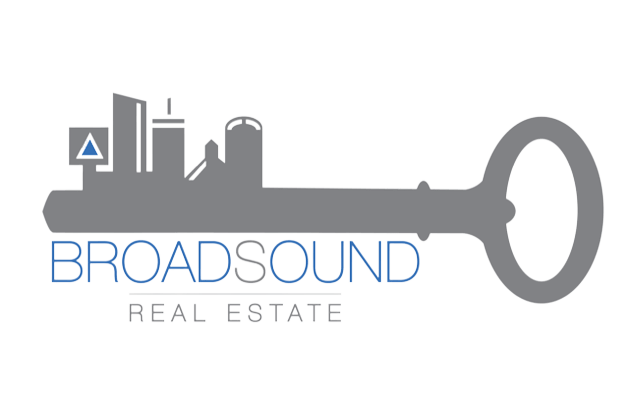Between 2007 and 2009, the United States faced a crippling economic recession that left many people with homes worth less than their mortgages, and it made investors understandably cautious. However, the real estate narrative today is quite different. Despite concerns about a 2023 market shift, the current real estate landscape shows remarkable stability and resilience.
Moreover, as we look ahead to 2024, there’s a promising outlook for the real estate market on the horizon. And within this article, we’ll delve into how real estate can work for you and help you grow your net worth.
Real estate is a great investment because it’s something you can actually touch and feel (and maybe even live in). And unlike stocks, which can go up and down like a roller coaster, real estate values tend to go up over the long term.
Of course, no investment is risk-free. But if you’re smart about it, real estate can be a great way to achieve your financial objectives.
Whether you want to buy a rental property, fix and flip a house, or invest in commercial real estate, there’s a real estate investment strategy that’s right for you.
If you’re unsure whether to dive into real estate investment, this article is your guide. In the next sections, we’ll show you how real estate can help increase your net worth. It’s all about making money with reliable rental income, profiting from property value increases, using loans smartly, saving on taxes, spreading your risk, and creating a lasting financial legacy. Keep reading if you don’t want to miss out on these opportunities!
Table of Contents
ToggleMaximizing Net Worth Growth with Real Estate in Seven Key Ways
1. Cashflow
Cash flow is the real deal when it comes to real estate. It’s the money you have left over after you’ve taken care of all those pesky expenses. Now, positive cash flow isn’t just some arbitrary financial milestone. It’s the essence of your real estate wealth journey. It’s like getting a paycheck every month without having to clock in at a 9 to 5 job.
Picture this: you’re making more money from your property than you’re spending on it – that’s positive cash flow in action. But what makes this cash flow so important? Let me break it down:
-
Paying Down Mortgages
Imagine your mortgage as a big, looming debt monster. With positive cash flow, you can start hacking away at this monster, bit by bit. It’s like chipping away at a massive ice cream cone – where the cone is your mortgage, and the sweet reward is financial freedom.
-
Fueling Future Investments
Now, let’s talk about expanding your real estate empire. Positive cash flow gives you the financial rocket fuel you need to scoop up more properties. It’s like having a money-printing machine that funds your journey to becoming a real estate mogul.
-
Boosting Your Financial Well-Being
Beyond property-related expenses, positive cash flow becomes your financial sidekick, helping you cover your day-to-day expenses and maybe even that dream vacation you’ve been itching for. It’s the little extra cushion that makes life sweeter.
Cash flow isn’t just about numbers on a balance sheet; it’s about real money in your bank account. It’s the engine that powers your real estate investments and propels you toward your financial goals. When rental income starts flowing in, and your expenses are no match for it, you’ve cracked the code to building wealth in the real estate game.
2. Appreciation
Real estate appreciation is when your property value increases over time. It’s like your property is putting on a money-making suit. Real estate values tend to go up over time, with some dips here and there, but historically, they’ve always bounced back stronger and higher. Here are the magic ingredients that make appreciation work wonders for your net worth:
- Market Trends: The pulse of real estate in your area. If your property is in a neighborhood that’s becoming the next big thing, you’re on your way to appreciation town. Think of it like catching a wave just as it’s building up. You ride it, and your property value soars.
- Location: This one is crucial! If your property is strategically placed, close to schools, workplaces, shopping hubs, and all the good stuff, its value skyrockets. It’s like being in the VIP section of real estate. Everyone wants in, and your property becomes a hot commodity.
- Strategic Property Enhancements: A little renovation here, some modern upgrades there. These savvy moves don’t just make your home cozier; they add serious value. It’s like giving your property a makeover. Who doesn’t love a house that’s both beautiful and valuable?
As your property appreciates, your net worth follows suit. Keep an eye on those market trends, invest in the right location, and don’t shy away from giving your property a little love. Before you know it, you’re sitting on a goldmine!
3. Leverage
Real estate is a powerful investment tool to increase your net worth, but it can be expensive to get started. That’s where leverage comes in. Leverage allows you to use borrowed money to amplify your returns, so you can achieve your financial goals faster and more efficiently.
Here’s how leverage works:
- You find a property that you want to invest in.
- You make a down payment on the property.
- You borrow the rest of the money from a lender, such as a bank or credit union.
Now, you own the property, but you only put down a fraction of the total cost. As the property value appreciates, your entire investment grows, not just the portion you’ve invested.
For example, let’s say you buy a $1 million property with a 20% down payment. That means you put down $200,000 and borrow $800,000 from the lender. If the property appreciates by 10% the following year, your investment will be worth $1.1 million. That means you’ll have made a 10% return on your investment. Now imagine it grows 10% for the following five years. So, after five years of 10% annual appreciation, the property would be worth approximately $1,610,510, or about 61.05% more than your initial investment.
PD: this was just an example. Remember that there are programs like FHA and Conventional, which can help you pay only a 3-5% down payment instead of 20%.
Leverage can be a very powerful tool for building wealth, but it’s important to use it wisely. Here are a few tips:
- Only borrow what you can afford to repay.
- Make sure you have a solid investment strategy in place.
- Diversify your portfolio to spread out your risk.
- Monitor your investments regularly and make adjustments as needed.
Leverage can be a double-edged sword. If the property value declines, you could lose more money than you invested. But if you use leverage wisely, it can be a powerful tool for achieving your financial goals. If you need advice for your specific situation, we can help you. Click to speak to a real estate professional.
Here’s a more casual analogy:
Imagine you’re trying to move a heavy rock. You could try to push it yourself, but it would be difficult and time-consuming. Instead, you could use a lever. A lever allows you to amplify your strength, so you can move the rock more easily.
Leverage works in a similar way for real estate investments. It allows you to amplify your returns, so you can achieve your financial goals faster and more efficiently.
4. Depreciation
Don’t let the term “depreciation” fool you; it’s not about the value of your real estate going down. Instead, it’s a tax concept that allows you to deduct a portion of your property’s value each year. This deduction plays a crucial role in reducing your tax liability, offering yet another way that real estate safeguards and grows your wealth.
Now, it’s a good idea to consult with a certified public accountant (CPA) for the nitty-gritty details of this tax benefit. However, the basic premise is that the government views your property as slowly wearing down over time, much like the equipment in a business you own.
This wear and tear is recognized through depreciation, providing you with a valuable tax break. It’s a fantastic arrangement – owning a property that generates income, has the potential to appreciate, and, at the same time, shields you from excessive taxes on your earnings. Would you complain?
But, here’s an important point to note: this tax exemption doesn’t apply to your primary residence. Rental properties enjoy this tax shelter because they are considered a business, allowing you to write off various expenses. However, if you use the property as your primary residence, this advantage doesn’t apply.
So, owning investment property gives you a tax advantage that can significantly enhance your wealth-building journey. If you want to get started, we’ve already helped many people like you buy their first property and become real estate investors, so we can assist you too – just click here.
5. Loan Paydown
Getting a loan to purchase real estate often means your tenants become the key to repaying it. What’s fantastic about real estate investing is that it’s not just about the cash flow – you’re also gradually chipping away at your loan balance with every payment made to the bank.
When you take out a loan to buy a property, you say, “I’m in this for the long haul, and I’m going to pay you back.” In the early years of your mortgage, most of your payment goes to interest, not the principal (the actual loan amount).
But that’s where the magic happens. As time goes on, with each monthly payment, more of your money starts to pay down the principal. It’s like watching your mortgage balance shrink, little by little. And the best part is, your tenant is helping you do it! Their monthly rent is often what’s funding your mortgage paydown.
Let’s crunch some numbers to make things clear. Imagine you buy a property with a $200,000 mortgage, and your monthly payment is $1,000. At first, let’s say $800 of that goes to interest, and only $200 goes to the principal.
But fast-forward a few years. Now, more of your $1,000 payment is going to the principal. It’s like a snowball effect. Suddenly, $400 is chipping away at the loan amount, while only $600 goes to interest. The more time passes, the more the principal shrinks, and you’re building wealth in the process. The exact numbers and proportions may vary depending on the specific mortgage terms and interest rates.
Loan paydown is like having a built-in savings plan. As your mortgage balance decreases, you’re effectively storing away money in the form of home equity. That’s money you can tap into later if you want to finance another investment or simply bolster your financial security.
6. Forced Equity
Forced equity is a real estate strategy that gives you control over growing your wealth. It is used to increase the value of a property you currently own or plan to hold long-term, with the intention of building wealth over time. Unlike appreciation, where you’re at the mercy of market whims, forced equity is all about taking action to boost your property’s value.
The most common way to create forced equity is by buying a fixer-upper below market value and then giving it a makeover. This can include adding appliances, refreshing the flooring, painting the walls, and making other minor repairs and updates.
Another way to force equity is to add extra bedrooms, bathrooms, or square footage to your property. This is especially effective if you can find properties with fewer amenities than they ideally should have. For example, you might find a house with just two bedrooms and add a third. Or you might find a property with only one bathroom and add a second.
Increasing the square footage of your property to match the surrounding homes can also be a good way to force equity. For example, if your neighbors’ homes all have 2,500 square feet, and your home only has 2,000 square feet, you could consider adding a finished basement or garage conversion to increase your square footage.
Opportunities like these require hard work and diligence, but the forced equity you generate can significantly boost your bottom line.
Here are some additional tips for forcing equity:
- Do your research before you start any forced equity project to make sure you’re making investments that will pay off in the long run.
- Get professional help if you’re not comfortable tackling a forced equity project on your own.
- Be patient, as it takes time to build equity in your property.
Forced equity can be a great way to build wealth through real estate investing. By taking action to boost the value of your property, you can increase your net worth and achieve your financial goals faster.
7. Inflation
Inflation is often overlooked in real estate investing, but it’s a powerful force that can help you build wealth over time.
But what is it? Inflation is the gradual decrease in the value of money over time. This means that your dollar today won’t buy you as much as it would have a decade ago. The cost of goods and services steadily rises as the value of money drops.
While inflation may seem like a bad thing, it can actually be beneficial for real estate investors. Here’s why:
- Your fixed costs remain stable. When you own property, many of your major expenses, like your mortgage and property taxes, remain fairly stable over time. They don’t inflate as rapidly as the cost of living.
- Your income increases. As inflation pushes up rents and property values, your income from your real estate investments increases as well.
- The gap between your income and expenses widens. As your income increases and your expenses remain stable, the gap between the two widens. This is where wealth-building happens.
In other words, inflation can help you build wealth by increasing your income while keeping your expenses relatively low.
Here’s an example:
Let’s say you buy a house today for $200,000. Your mortgage payment is $1,000 per month. Over time, inflation causes rents and property values to rise. In 10 years, your rental income has increased to $2,000 per month, and your property value has increased to $400,000.
However, your mortgage payment has remained the same at $1,000 per month. This means that your income is now twice your expenses. The gap between your income and expenses has widened, and you’ve built wealth.
Conclusion
In conclusion, real estate offers a multitude of strategies to build and expand your wealth. From the potential for property appreciation to the ability to create forced equity, the world of real estate investing can be a powerful tool for financial growth. Each strategy has its unique advantages and considerations, making it essential to choose the one that aligns with your financial goals and risk tolerance.
As you navigate the world of real estate, remember that your net worth is more than just a number on paper. Real estate is not a get-rich-quick scheme; it’s a long-term endeavor that requires careful planning, patience, and diligence. Whether you’re looking to generate rental income, buy and hold properties for appreciation, or take on a forced equity project, conducting thorough research and, when needed, seeking professional guidance is crucial.
Real estate has helped many individuals achieve their financial dreams, and it can do the same for you. By taking the right actions and leveraging the strategies outlined in this article, you can work toward a brighter financial future, building your net worth one property at a time.
I am Juan Cano, a professional real estate broker and I would be more than happy to guide you in the real estate investment world and help you build your net worth. Feel free to reach out to me by filling out this form or by messaging me directly on WhatsApp!















![eBook How to Increase Home Value [7 Simple Ways]](https://realestatejuanc.com/wp-content/uploads/2022/03/FORMAS-WAYS-TO-INCREASE-YOUR-HOME-VALUE.png)